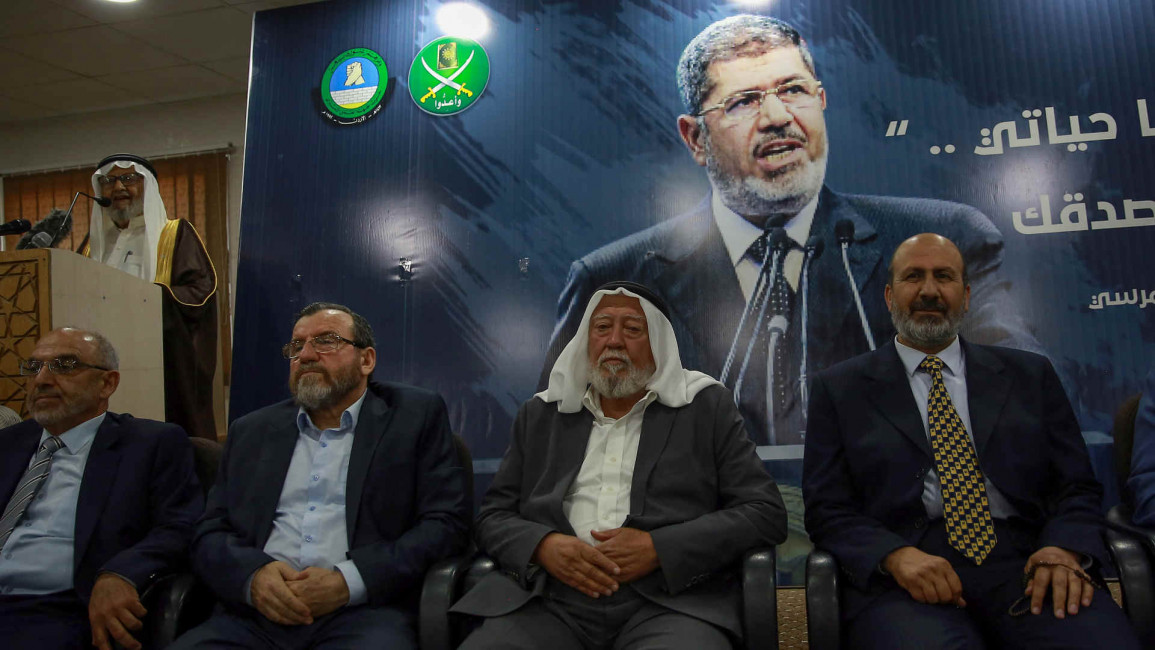Follow us on Twitter and Instagram to stay connected
Jordan's Muslim Brotherhood-linked party calls for release of political prisoners
Jordan's Muslim Brotherhood-linked party calls for release of political prisoners
The Islamic Action Front's general secretary called on Jordan's Prime Minister to release members of its party.
2 min read
Several members of the Jordanian Islamic Action Front Party are detained [AFP/Getty]
The Islamic Action Front (IAF), the political wing of the Muslim Brotherhood in Jordan, called on Prime Minister Omar al-Razzaz to release its members.
In a statement addressed to the Prime Minister, IAF's Secretary General Murad Adaileh, said a number of the party's leaders and members were being held without charge for more than two months and denied visits by relatives.
"The policy of silencing and political arrests pursued by the government during these difficult times, and in the midst of a region reeling from violent acts, does not improve our condition but contributes to deepening the internal crisis," Adaileh said.
"This will not serve our country. Rather, it will undermine its unity and damage its reputation."
The Islamic Action Front party won 16 of 130 seats in Jordan's 2016 parliamentary election, returning them to parliament as a significant opposition force.
In a statement addressed to the Prime Minister, IAF's Secretary General Murad Adaileh, said a number of the party's leaders and members were being held without charge for more than two months and denied visits by relatives.
"The policy of silencing and political arrests pursued by the government during these difficult times, and in the midst of a region reeling from violent acts, does not improve our condition but contributes to deepening the internal crisis," Adaileh said.
"This will not serve our country. Rather, it will undermine its unity and damage its reputation."
The Islamic Action Front party won 16 of 130 seats in Jordan's 2016 parliamentary election, returning them to parliament as a significant opposition force.
The statement comes at a time of increased political arrests in Jordan. As of last Friday, there were 54 political detainees in the kingdom, according to a Jordanian activist group quoted by The New Arab's Arabic-language service.
Human Rights Watch drew attention to Jordan's crackdown on political activists in June, saying Jordanian authorities have increasingly targeted activists "on charges that violate freedom of expression".
Charges listed against political activists ranged from insulting the king to "undermining the political regime", the rights group reported.
"Jordanian authorities should manage public discontent over domestic economic woes and austerity policies by engaging and listening to citizens rather than arresting protest organisers and those calling for public accountability," said Michael Page, deputy Middle East director at Human Rights Watch.
Human Rights Watch drew attention to Jordan's crackdown on political activists in June, saying Jordanian authorities have increasingly targeted activists "on charges that violate freedom of expression".
Charges listed against political activists ranged from insulting the king to "undermining the political regime", the rights group reported.
"Jordanian authorities should manage public discontent over domestic economic woes and austerity policies by engaging and listening to citizens rather than arresting protest organisers and those calling for public accountability," said Michael Page, deputy Middle East director at Human Rights Watch.



